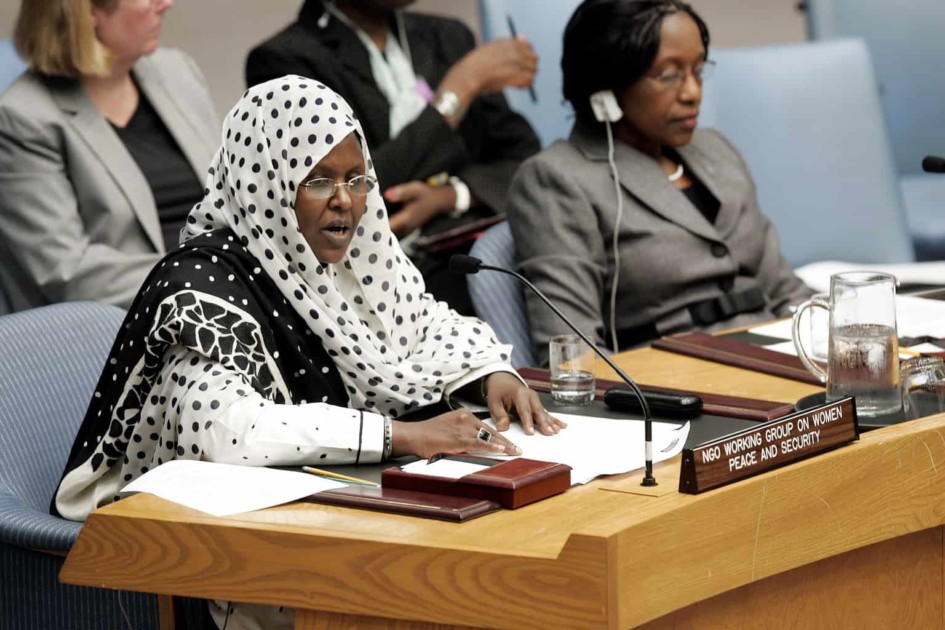Somalia
Somalia’s long-running armed conflict has been characterized by extremism, sectarian political violence, complex humanitarian crises, and piracy, and women have been disproportionately at risk of death and as targets of sexual and gender-based violence and displacement.
Based on the work of NGOWG members and their partners, the NGOWG advocates for women’s political participation, women’s meaningful and active participation in design and implementation of humanitarian responses, and strengthened mechanisms to prevent and respond to sexual and gender based violence.
Somalia
Somalia’s long-running armed conflict has been characterized by extremism, sectarian political violence, complex humanitarian crises, and piracy. Women have been disproportionately at risk of death, and as targets of sexual and gender-based violence and displacement.
Based on the work of NGOWG members and their partners, the NGOWG advocates for women’s political participation, women’s meaningful and active participation in design and implementation of humanitarian responses, and strengthened mechanisms to prevent and respond to sexual and gender based violence.
Current and Past Recommendations to the UN Security Council (Monthly Action Points)
As the Council continues to consider the situation in Somalia and discusses the latest Secretary General’s reports on the UN Assistance Mission in Somalia (UNSOM) and the African Union Mission in Somalia (AMISOM), the Council should promote women’s full participation in all efforts to maintain peace and security in Somalia, as well as inquire into efforts by the Federal Government of Somalia and Interim Regional Administrations, with assistance from UNSOM and AMISOM, to continue to promote increased representation of women at all decision-making levels in Somali institutions. The Council should also ensure there is progress made in implementing UNSOM’s mandate (SCR 2158 (2014), OP 1 (d)(i), (d)(iii) and (d)(iv) and OP 1 (e)(iii)) to help prevent, monitor, investigate and report on abuses and violations of human rights and international humanitarian law, including through the full deployment of Gender Advisers. The report should also include efforts by AMISOM and troop contributing countries, as specified in SCR 2275 (2016). Further, the Council should also request information on Somali authorities and AMISOM efforts to ensure women, girls, boys and other non-combatant males are protected and provide safe passage to civilians, during military offensives to recapture towns under Al-Shabaab control. As a recent Secretary-General report has evidenced ISIL / Da’esh increasing influence in Somalia (S/2016/830), the Council should request information and analysis on the differential impact on the human rights of women and girls of terrorism and violent extremism in Somalia, as well as efforts by the missions to ensure the participation and leadership of women and women’s organizations in developing strategies to counter terrorism and violent extremism (SCR 2242 (2015), PP 14, OP 13).


